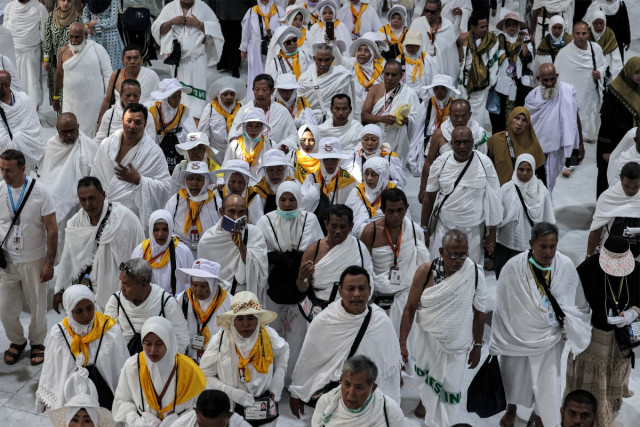Over 1.5 million Muslims are expected to gather on Mount Arafat on Saturday, the most challenging day of the annual Hajj pilgrimage.
Pilgrims from around the globe will ascend the 70-meter hill, located approximately 20 kilometers from Mecca, where it is believed that Prophet Mohammed delivered his final sermon.
The desert heat is forecasted to reach 43 degrees Celsius (109.4 degrees Fahrenheit), posing difficulties particularly for the elderly during a day of prayer and Quran recitation.
The Hajj, which lasts for at least five days and is predominantly conducted outdoors, presents challenges due to the intense heat, as mentioned by 26-year-old Ghanaian pilgrim Abraman Hawa.
Saudi authorities have advised pilgrims to stay hydrated and shield themselves from the sun, with many men carrying umbrellas as they are not allowed to wear hats.
Last year, over 10,000 heat-related illnesses were reported, with 10% of them being heat stroke.
A Saudi study has indicated that the Hajj is being increasingly impacted by climate change, with regional temperatures rising by 0.4C every decade.
Following their time in Arafat, the pilgrims will proceed to Muzdalifah to gather pebbles for the symbolic "stoning of the devil" ritual in Mina on Sunday.
The Hajj is believed to retrace the steps of the Prophet Mohammed's final pilgrimage, which took place around 1,400 years ago.
This pilgrimage is a significant source of legitimacy for the Al Saud dynasty, whose monarch holds the title "guardian of the two holy mosques" in Mecca and Medina.
It also serves as a major financial boon for the conservative country, which is seeking to promote religious tourism as part of its efforts to reduce reliance on crude oil.
This year's hajj is taking place against the backdrop of the Gaza war, following eight months of ongoing conflict that continues to deeply affect many in the Muslim world.




















